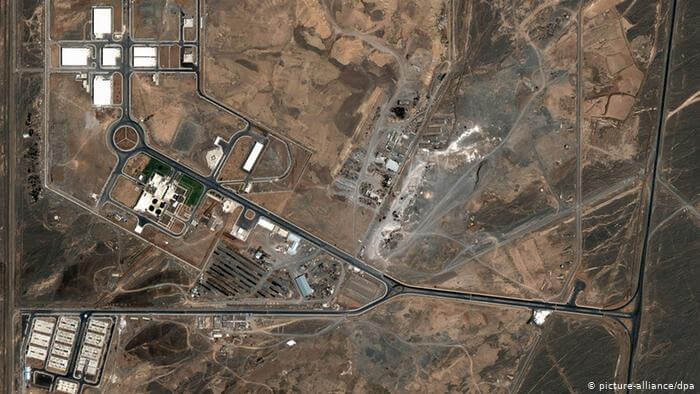The Iran regime has once again breached the 2015 nuclear deal by increasing its usage of illegal centrifuges at its underground facility and enriching uranium beyond the agreed upon purity level, according to an International Atomic Energy Agency (IAEA) report to U.N. member states this week obtained by Reuters.
“Tehran is well on its way to doubling enrichment capacity at the Natanz Fuel Enrichment Plant. Iran’s continued installation of advanced IR-2m centrifuges is not only a further violation of the JCPOA, but part of its calibrated campaign to extort sanctions relief in Washington,” said Foundation for Defense of Democracies Research Fellow Andrea Stricker to The Foreign Desk.
Under the original JCPOA framework, Iran was banned from using IR-2m centrifuges and were required to remove all previously installed IR-2 centrifuges into storage, due in part to their significantly more efficient enrichment output compared to IR-1m centrifuges.
However, this restriction is set to expire in 2026 due to sunset clauses within the JCPOA, which means that “Iran’s deployment of advanced centrifuges by the thousands is permitted by the JCPOA in just a few years’ time,” Stricker explained, highlighting the original agreement’s failure to focus on Iran’s long-term pathway to a nuclear weapon.
“The Biden administration should work with America’s allies in Europe to form a new consensus. They should tell Iran they are scrapping the JCPOA, but will work toward a new accord that actually blocks Tehran’s pathways to a bomb,” said Stricker.
The JCPOA also set a limit on uranium enrichment to 3.67 percent, set to expire in 2030, which the Islamic Republic has been openly violating since January despite knowing that this action would complicate further negotiations with European countries and the U.S. to revive the nuclear deal.
Iran is currently enriching uranium to 5 percent at its Natanz facility using the new IR-2 centrifuges and to 20 percent at its Fordow nuclear facility.
Stricker made clear that “the administration cannot solve this issue by removing all pressure and leverage in return for the JCPOA’s temporary limitations. If we don’t like how Iran is holding its enrichment program over the world now, the situation will not be any better if Washington re-enters a deal that legally facilitates this outcome.”
The Biden administration has said it will not rejoin the JCPOA unless Iran comes into compliance with enrichment standards; however, Iran has its own preconditions, saying it will not come into compliance until Washington lifts the sanctions that have crippled the regime’s infrastructure and influence in the region.
Iran’s regime has further said it will not consider any additions to the original 2015 JCPOA, including any attempts by Washington to restrict its ballistic missile program.










